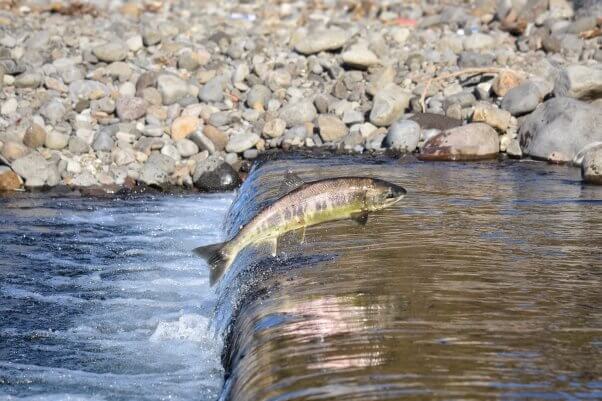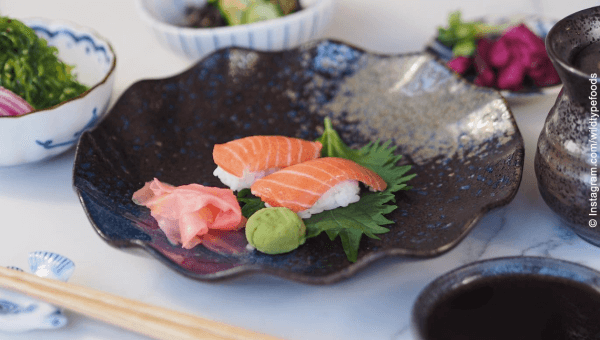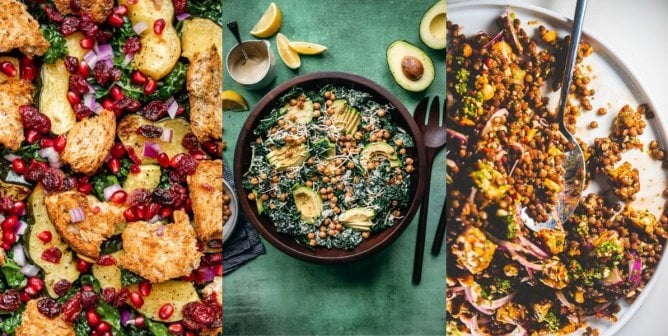1. Salmon Are Smart
Fish are smart. Oxford University scientist Dr. Theresa Burt de Perera recently discovered that they learn even faster than dogs do. Fish learn from each other, have long-term memories, and can recognize one another. They gather information by eavesdropping, and some species even use tools. Like the dogs and cats with whom we share our homes, they also like to play, investigate new things, and hang out with friends.
Sea Which New Vegan Seafood Products Can Be Found Online and in Grocery Stores
Terms for automated texts/calls from PETA: http://peta.vg/txt. Text STOP to end, HELP for more info. Msg/data rates may apply. U.S. only.
2. Arsenic and Old Waste
Mmm, want a plate full of poison? Thanks to destructive human activities, the flesh and fat of fish typically contain extremely high levels of arsenic, DDT, dioxins, mercury, and lead. You may even get industrial-strength fire retardant with that catch of the day. The chemical residue found in salmon flesh can be as much as 9 million times that of the water in which they live.
3. Harm on the Farm
Salmon is the most popular fish flesh in the U.S., and four-fifths of the salmon used for food are raised on aquafarms. These fish, who are raised by the millions in netted areas of coastal waters, are killing off wild fish populations, since it takes 5 pounds of commercially caught fish (species not eaten by humans) to produce 1 pound of farmed fish.
4. Sea Lice Aren’t So Nice
No one wants to wear a “death crown,” but thanks to chronic sea lice—parasites who eat down to the bones on a fish’s face—salmon on aquafarms commonly suffer from this condition. They also routinely go insane and sustain sores and other injuries from intense crowding, as they’re made to live with as many as 27 other fish in a space the size of a bathtub.
5. Slammin’ Salmon
No, we’re not talking about a baseball player, but fish farmers do often use bats to beat large salmon to death. All methods used to slaughter fish are grotesque and cruel. The gills of fish are slit while they’re still alive, and smaller salmon are often packed in ice and left to slowly suffocate or freeze to death.
6. Open Waters Are Open Sewers
Everybody loves the Big Apple, but would you eat something fished out of the city’s sewer system? According to the Norwegian government, the salmon and trout farms in Norway alone produce roughly the same amount of sewage as New York City. The massive amount of raw sewage, fish corpses, and antibiotic-laden fish food sludge that settles below the cages of farmed salmon can actually cause the ocean floor to rot, destroying vital habitat for the already strained marine ecosystem and turning coastal waters into open sewers.
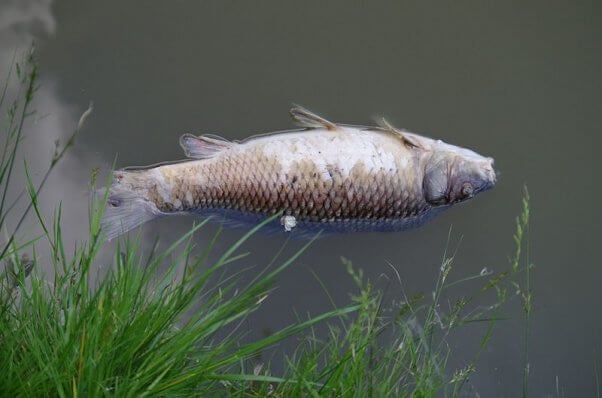
7. Breeding Brain Damage
Usually, when mothers pass something on to their children, it’s a good thing—but when pregnant or nursing moms eat fish, they pass the toxins they consumed on to their babies. Studies have also shown that children born to mothers who eat fish are slower to talk, walk, and develop fine motor skills and that they have weaker memories and shorter attention spans. Scientists at the Harvard School of Public Health have found that fish consumption can cause irreversible impairment to brain function in children, both in the womb and as they grow.
8. Don’t Forget About the PCBs
Feeling forgetful? Something fishy may be going on. Scientists have proved that people who eat only two servings of fish a month have difficulty recalling information that they learned just 30 minutes earlier. The culprit is high levels of mercury, lead, and PCBs in their blood. PCBs, synthetic chemicals polluting water and concentrated in fish flesh, act like hormones, wreaking havoc on the nervous system and contributing to a variety of illnesses beyond forgetfulness and vertigo, including cancer, infertility, and other sexual problems.
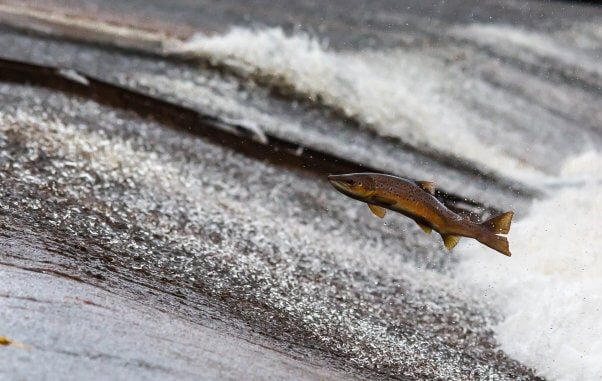
9. For Your Health
Would you like tartar sauce with those cancer-causing toxins? If you’re feeling green around the gills, salmon could be making you seriously ill. The Environmental Working Group estimates that 800,000 people in the U.S. face an excess lifetime cancer risk from eating farmed salmon. Plus, salmon flesh contains high amounts of artery-clogging cholesterol and fat.
10. Fish-Free Fish
Tempt your taste buds without harming salmon by choosing vegan seafood instead. These options are becoming increasingly easy to find in your local grocery stores and from online vegan retailers, and they pack tons of flavor without any of the cruelty, contaminants, or cholesterol of actual fish. There are even plenty of delicious vegan salmon recipes out there, along with innovative new products like Vegan ZeaStar’s Sashimi Zalmon.
If you’re fishing for a way to help animals while having a positive impact on the environment and your own personal health, going vegan is the best thing that you can do. Order a free vegan starter kit and we’ll send you great-tasting recipes, nutrition information, and everything else that you’ll need to make an extremely positive change:
Text VEG to 73822 to get the latest vegan lifestyle tips, recipes, and urgent action alerts texted right to your phone.
Terms for automated texts/calls from PETA: https://peta.vg/txt. Text STOP to end, HELP for more info. Msg/data rates may apply. U.S. only.


